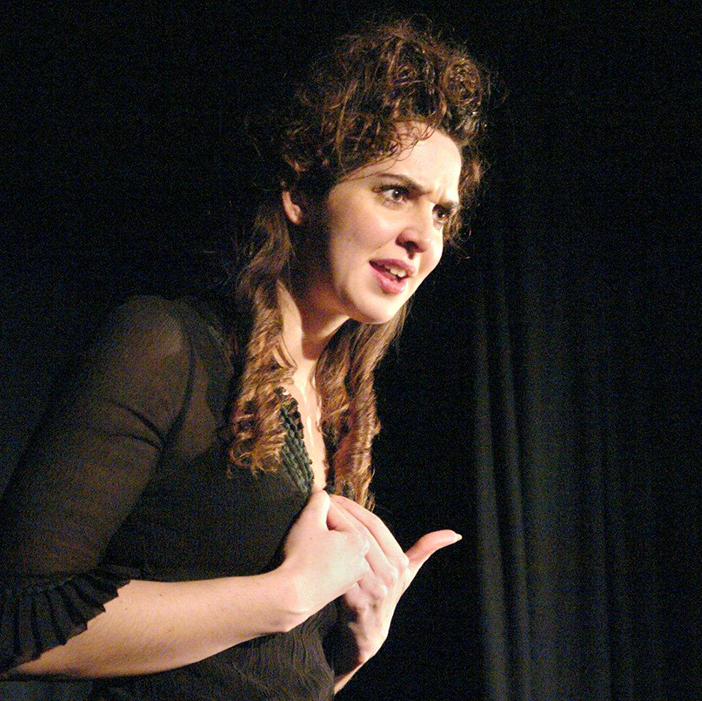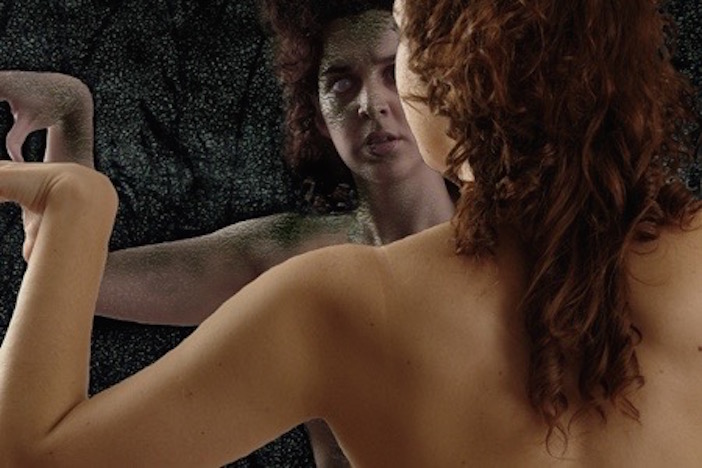Kafka’s novella Metamorphosis, about a young man who gradually changes into a beetle, remains a disturbing classic.
But this new play, carefully crafted by Sam Chittenden, turns the story on its side by exploring what this transformation might mean for Grete, his adolescent sister, living next door. Taking the woman’s perspective opens up the story to multiple transformations.
Just imagine: your brother’s body has started to change. His skin is getting harder, he’s scuttling across the floor, he’s sleeping under the bed.
There are the practicalities. Every day, Grete has to clean her brother’s room and sweep up the waste and sputum. She catches an ever fainter resemblance in her brother’s eyes as he becomes encased in shell and claw. But we feel Grete’s constant empathy amid this gradual decline. There is a striking allusion here to contemporary dilemmas of caring for relatives with dementia.
But Grete’s body is also changing: her first menstruation is magical and catastrophic. Relations in her family change: her father now looks at her strangely. The old man renting a room upstairs begins to take an avaricious interest in Greta’s new curves, and more.
The play hints at other transformations too. The setting is Prague circa World War I and people are becoming distrustful. Grete’s family, like other Jewish people amid the pogroms, are finding it harder to get work. We know there’s even worse to come.

Greta is conjured by exquisite acting from Heather-Rose Andrews who, as the single actor, remains on stage throughout. She sculpts Grete’s emotions by the curl of her body, the angle of her head, the curve of her hands.
Subtle shifts of lighting from white to amber serves to accentuate or soften Heather-Rose’s face on a black stage. Transformations of mood and scene are signalled through episodic tinkles of a piano somewhere between Erik Satie and Philip Glass.
The intensity seems to hesitate about three quarters of the way through and we wonder how the multiple threads will be resolved. But the play is still under development and the finale hits the right note: neither tragic nor sentimental.
There is a classic beauty to this play’s construction and enactment. And the audience leaves with that silent spellbound feeling that marks all great theatrical experiences. We’re all going to see it again at Brighton Fringe (7th to 13th May at Sweet Venues) so get your ticket quick!
Sweet Venues, Southern Belle, Saturday 31st March 2018
Words by Mike Aiken
Photo by Strat Mastoris

